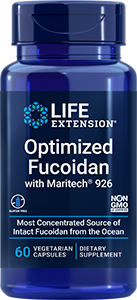Mediterranean diet lowers cardiovascular events in randomized trial
Friday, March 1, 2013. The results of a trial described online on February 25, 2013 in the New England Journal of Medicine indicate a protective effect for a Mediterranean diet against the risk of experiencing heart attack, stroke or death from cardiovascular causes among older adults at high cardiovascular risk. A Mediterranean diet, which is high in fruit, vegetables, fish, legumes, nuts and olive oil, has been associated with a lower risk of cardiovascular disease and premature death in several studies of its adherents.
The trial included 7,447 men and women with no cardiovascular disease upon enrollment who had at least three risk factors for the disease. Participants were randomized to a Mediterranean diet supplemented with extra-virgin olive oil, a Mediterranean diet supplemented with almonds, hazelnuts and walnuts, or a low-fat control diet.
The trial was concluded after a median follow-up of 4.8 years, during which myocardial infarction, stroke or death from cardiovascular disease occurred among 288 subjects. In comparison with participants who adhered to the control diet, the adjusted risk of experiencing a cardiovascular event was 29 percent lower for those who followed a Mediterranean diet plan. The findings were similar when the two Mediterranean diets were separately evaluated. Heart attack and stroke risks were 23 percent and 39 percent lower in those who consumed a Mediterranean diet, and the risk of dying from cardiovascular disease over follow-up was 17 percent less.
"In this primary prevention trial, we observed that an energy-unrestricted Mediterranean diet, supplemented with extra-virgin olive oil or nuts, resulted in a substantial reduction in the risk of major cardiovascular events among high-risk persons," authors Ramón Estruch, MD, PhD and colleagues write. "The results support the benefits of the Mediterranean diet for the primary prevention of cardiovascular disease." |
 |
|
A report published online on August 1, 2012 in the Journal of Clinical Endocrinology and Metabolism (JCEM) describes the results of a study of the effects of a Mediterranean diet on markers of bone formation in older men. "This is the first randomized study which demonstrates that olive oil preserves bone, at least as inferred by circulating bone markers, in humans," announced lead researcher José Manuel Fernández-Real, MD, PhD, of Hospital Dr Josep Trueta in Girona, Spain.
The study included 127 men aged 55 to 80 years enrolled in the Prevencion con Dieta Mediterranea (PREDIMED) study, which was designed to evaluate the cardioprotective effect of the Mediterranean diet. Participants in the current study had type 2 diabetes or three or more cardiovascular risk factors. The subjects were randomized to consume a Mediterranean diet with mixed nuts, a Mediterranean diet enhanced with virgin olive oil or a low fat diet for two years. Circulating osteocalcin, undercarboxylated osteocalcin, C-telopeptide of type 1 collagen and procollagen I N-terminal propeptide levels were measured at the beginning and end of the study. In addition to these markers of bone formation and resorption, fasting insulin, glucose and other factors were assessed.
Men who consumed the olive-oil enriched Mediterranean diet had significant increases in total osteocalcin and procollagen I N-terminal peptide, while these values remained the same in men who consumed the other diets. Greater intake of olives was also associated with increased osteocalcin at the beginning and end of the intervention.
"The intake of olive oil has been related to the prevention of osteoporosis in experimental and in vitro models," Dr Fernández-Real noted. "It's important to note that circulating osteocalcin was associated with preserved insulin secretion in subjects taking olive oil. Osteocalcin has also been described to increase insulin secretion in experimental models." |
|

|
 |
|
Vitamin C, or ascorbic acid, is a white, crystalline, water-soluble substance found in citrus fruits. As an antioxidant, vitamin C scavenges free radicals in the body and protects tissues from oxidative stress. Vitamin C also promotes the absorption of iron, while preventing its oxidation. Vitamin C is a vital cofactor to the formation of collagen, the connective tissue that supports arterial walls, skin, bones, and teeth.
More vitamin C is contained in the adrenal glands than any other organ in the body and is required at higher levels during times of stress. Physical stresses on the body such as ingestion of heavy metals, cigarette smoking, immune impairment, extreme temperatures and chronic use of certain medications such as aspirin also signal the need for increased intake of vitamin C. |
|
 |
|
In recent years, scientific interest has intensified around fucoidan, a little-known molecule found primarily in edible seaweeds native to the Japanese diet. Nearly 900 published studies indicate its power to promote healthy immune function, cell-to-cell communication, and tissue maintenance.
Many experts now believe fucoidan is one of the key nutrients responsible for the exceptionally long, healthy lives enjoyed in Okinawa, Japan … which for decades boasted the world's highest concentration of centenarians (individuals at least a century old).
Maritech® 926 fucoidan is sourced from hand-harvested, wild seaweed from the pristine ocean waters of Patagonia. |
|
|



